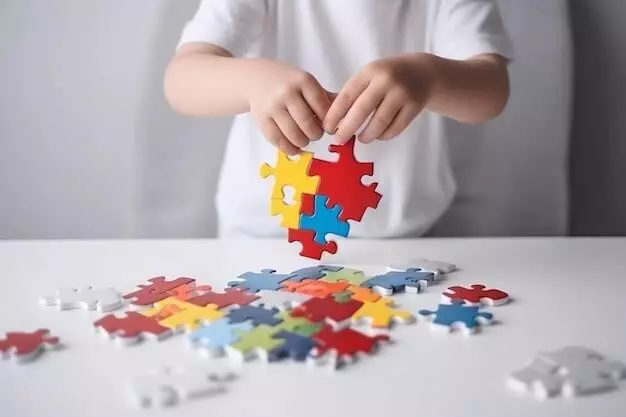Autism Awareness Month: Debunking common myths about autism
Autism affects people of all genders and demographics
By Neelambaran A
Representational Image.
Hyderabad: Autism or Autism Spectrum Disorder (ASD) is a complex neurodevelopmental condition characterised by behavioural, social and communication differences. Even with increased awareness, numerous myths persist, frequently resulting in stigma and misunderstandings.
Annually, the month of April is observed as autism awareness month, and the campaign programs begin on April 2 to promote understanding and create acceptance of individuals with autism through various events.
Dr N Varsha Monica Reddy, a consultant paediatric neurologist, Yashoda Hospitals, debunked five common misconceptions and offered information to promote a more understanding and supportive atmosphere for people with autism.
1. Myth: Vaccines or poor parenting cause autism.
Fact: Vaccines and parenting practices do not cause autism. Research indicates that autism stems from variations in brain development influenced by both genetic and environmental factors. The notion that vaccines cause autism originated from a study in the 1990s that has since been thoroughly discredited. Numerous scientific studies have repeatedly demonstrated that there is no link between vaccines and the development of autism.
2. Myth: Every autistic person possesses unique abilities or savant skills.
Fact: While some autistic people have exceptional intelligence and amazing talents (known as savant syndrome), this applies to only 10-30 per cent of autistic individuals. However, many people with autism have strong passions or areas of exceptional performance that can be developed and fostered with appropriate support.
3. Myth: People with autism don’t have feelings or empathy.
Fact: People with autism can feel empathy profoundly and experience the full range of human emotions. Misunderstandings may arise from differences in their social interactions or emotional expressions. People with autism may need clearer social cues or assistance to navigate complex social situations because they often have unique ways of expressing their feelings.
4. Myth: Boys are the only ones affected by autism.
Fact: Autism affects people of all genders and demographics, though its presentation varies widely. Girls may mask characteristics to fit in, which can result in underdiagnosis. Autism does not have an identifiable ‘look’; like the general population, autistic individuals have diverse interests, abilities, and physical characteristics.
5. Myth: It is possible to cure or outgrow autism.
Fact: Although symptoms may evolve with development and appropriate interventions, autism is a lifelong condition. Structured support—such as behavioural therapy and accommodations—helps people thrive but does not ‘cure’ autism. Acceptance and understanding are essential to create an inclusive environment where autistic people can realize their full potential.
By dispelling these stereotypes and celebrating the diversity of the autism spectrum, we can work toward a more accepting and supportive society for everyone, regardless of their neurological differences.